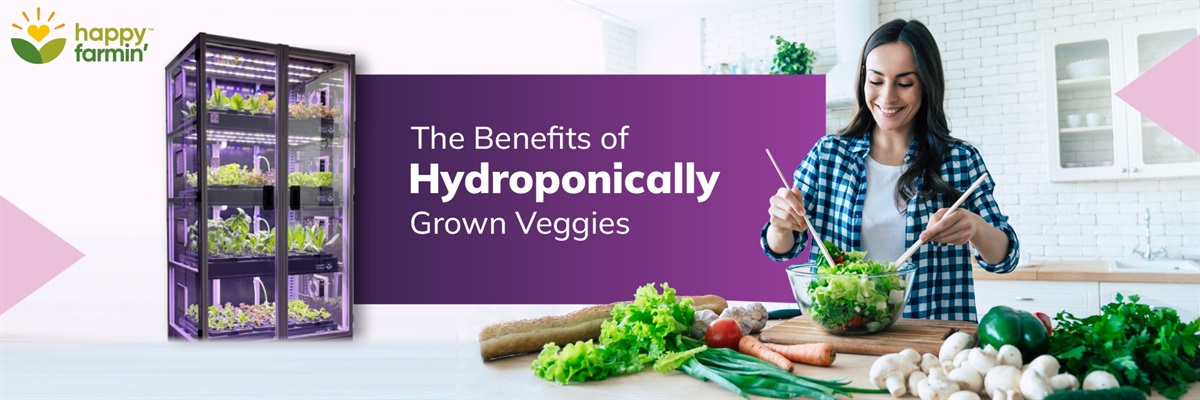
Hydroponics is a form of farming that has grown rapidly in popularity in recent years. It is an innovative way to grow plants without soil, using mineral-rich nutrient solutions instead.
Hydroponic farming is becoming increasingly popular due to its potential to yield high-quality products in a more efficient, cost-effective, and sustainable manner.
An area that is ripe for innovation, hydroponic farming will only continue to grow in popularity in the coming years as more people become aware of the benefits of sustainable agriculture.
Hydroponic farming is much more efficient than conventional soil-based farming, resulting in greater crop yields with less waste. Produce grown using hydroponics is also healthier and better tasting, thanks to the constant supply of nutrients it receives. Hydroponic farmers can also control their crops' growth cycles much more precisely, regardless of the season or even the weather. As hydroponic methods continue to improve, we can expect to see hydroponics production become a more mainstream means of farming.
In this blog post, we will explore the many benefits of hydroponic farming, so tighten your seat belts and let’s get going.
No need for soil
Growing food hydroponically is a form of gardening that eliminates the need for soil and instead uses a mineral nutrient solution to feed plants. Hydroponics allows gardeners to easily grow their homegrown produce indoors or outdoors without the need for large amounts of space or specialized equipment. It's also a great option for agriprenuers who want to start their own indoor farming business.
The lack of soil means that hydroponic gardening is much cleaner than traditional growing methods and also eliminates many common problems associated with soil-based gardening, such as weeds, pests, and diseases. Additionally, it is easier to control the temperature and humidity levels in an enclosed hydroponic environment, making it possible to domesticate plants that are typically found in tropical or temperate climates.
The lack of soil also means that water usage can be significantly reduced in a hydroponic system. With less water wasted on evaporation and runoff, hydroponic gardening can be a more efficient way to grow crops than traditional gardening methods. This makes it an attractive option for those interested in conserving water and reducing their environmental footprint.
Overall, hydroponics offers many advantages over traditional gardening techniques when it comes to cultivating produce without the need for soil. Whether you're looking for a cleaner and easier way to grow your food or an opportunity to start your own indoor farming business, domesticating hydroponics is worth exploring.
Pest and disease control
Hydroponic farming does not require the use of pesticides, as the plants are grown in a controlled environment. This means that the plants are not exposed to pests and diseases, reducing the need for pesticides.
Pest and disease control is one of the biggest benefits of hydroponic farming. By growing plants in a closed environment, Agriprenuers can easily control the number of pests and diseases that can affect their homegrown crops. Unlike soil-based agriculture, indoor hydroponic farming eliminates the chance of soil-borne diseases, like root rot.
Additionally, hydroponics systems are much more efficient in terms of pest control, as the plants can be treated with pesticides or other solutions without having to worry about contaminating the soil. This means that your plants will stay healthier, allowing you to maximize your yields and get the most out of your Domesting Hydroponics.
Can be done indoors
Agriprenuers and urban farmers alike are recognizing the value of indoor farming, especially when it comes to hydroponics. With this method, you can grow your produce indoors in any space, no matter how small. That’s because hydroponic systems take up very little space, don’t require soil, and can be custom-fitted for any room or even rooftop setting. By domestic hydroponics, you can reap the benefits of hydroponic farming without having to invest in costly land or equipment.
You can design a hydroponic system to fit almost any indoor space, from an apartment balcony to a window box to a closet. This makes hydroponic farming an attractive option for agriprenuers who want to launch their urban farm without needing to own large swaths of land.
Increased Yields
Hydroponic farming can produce higher yields than traditional soil-based farming. This is because the plants are grown in a nutrient-rich solution, which allows them to absorb more nutrients than they would in soil. This means that hydroponic farmers can get more out of their crops, resulting in higher yields.
Reduced Water Usage
Hydroponic farming uses significantly less water than traditional farming methods. This is because the nutrient solution is recycled and reused, meaning that less water is needed to keep the plants healthy. This can help to reduce water usage and save money in the long run.
Faster Growth
Hydroponic farming allows plants to grow faster than they would in soil. This is because the nutrient solution is constantly being replenished, providing the plants with the nutrients they need to grow quickly.
Easier to Control
Hydroponic farming is much easier to control than traditional farming methods. This is because the environment can be easily adjusted to suit the needs of the plants, allowing for more precise control over the growth of the plants.
Hydroponic farming is a great way to grow plants in a controlled environment, with minimal effort and cost. It can provide higher yields, reduce water usage, reduce pesticide use, and allow for faster growth. If you’re looking for a way to grow plants without the hassle of traditional farming methods, hydroponic farming may be the perfect solution for you.
Conclusion
It’s no secret that Happy Farmin' is one of the best kitchen appliances that you can buy today. You can grow your own vegetables and herbs in a small pot, but with its attractive look, Happy Farmin’ is an amazing appliance that suits best your kitchen. So go ahead, get Happy, and see how you enrich your life by starting to grow your food.
While it is still not a mainstream form of agriculture, there are some clear advantages to hydroponic farming that are alluring to business owners and consumers alike. Hopefully, this blog post has provided you with an introduction to these practices, as well as insight into their potential. Whether you're looking to start your hydroponic farm, or simply want the freshest produce possible without pesticides in your food, you now have a better understanding of this exciting growing technique.
